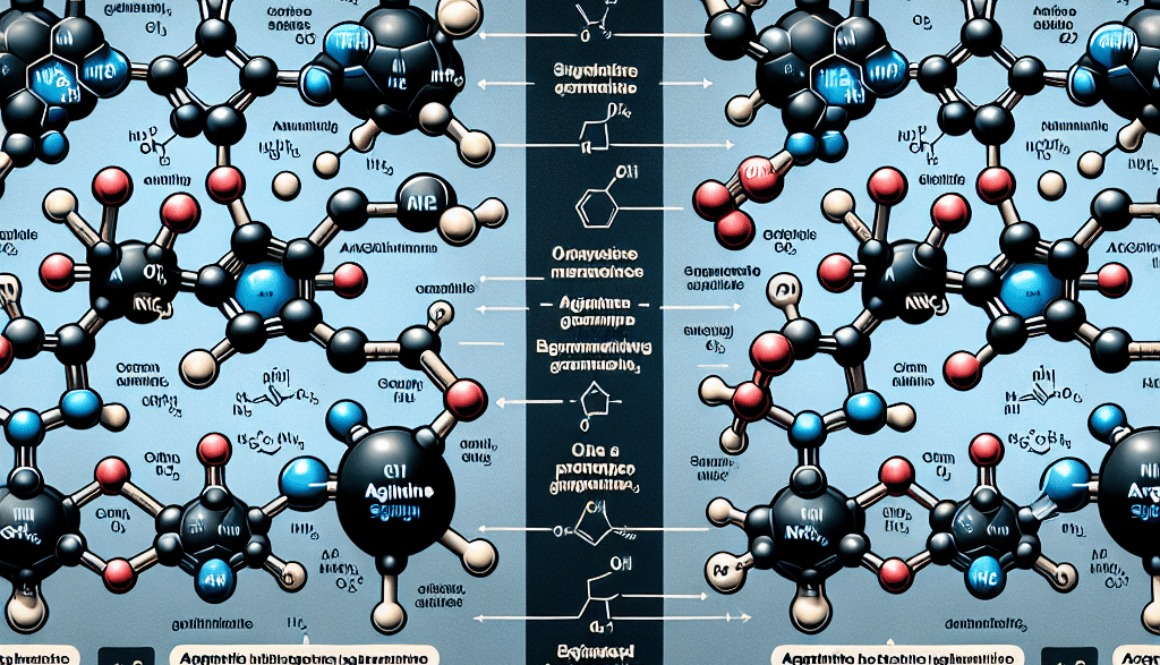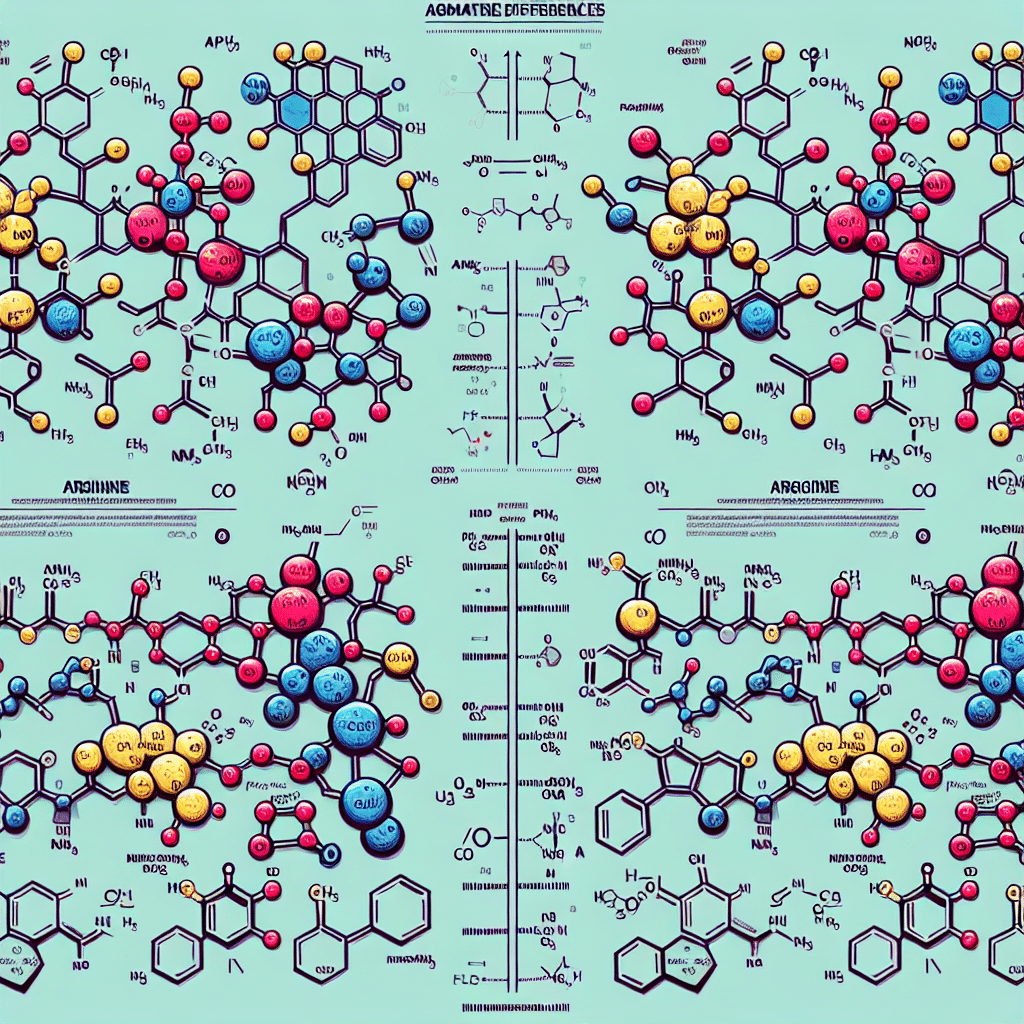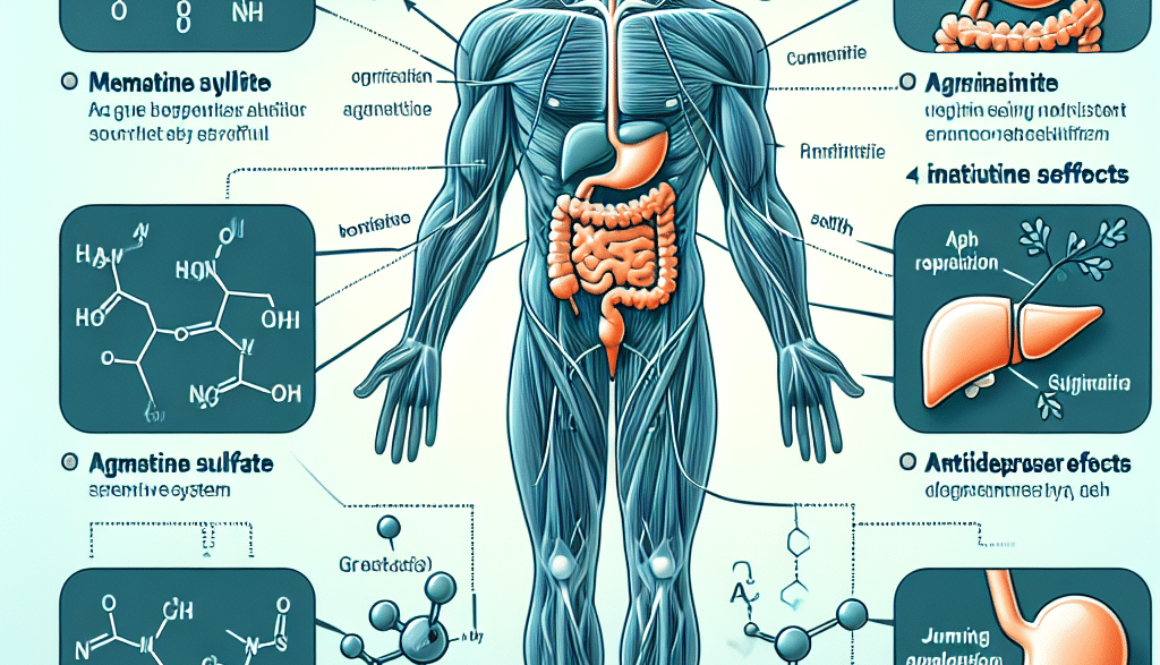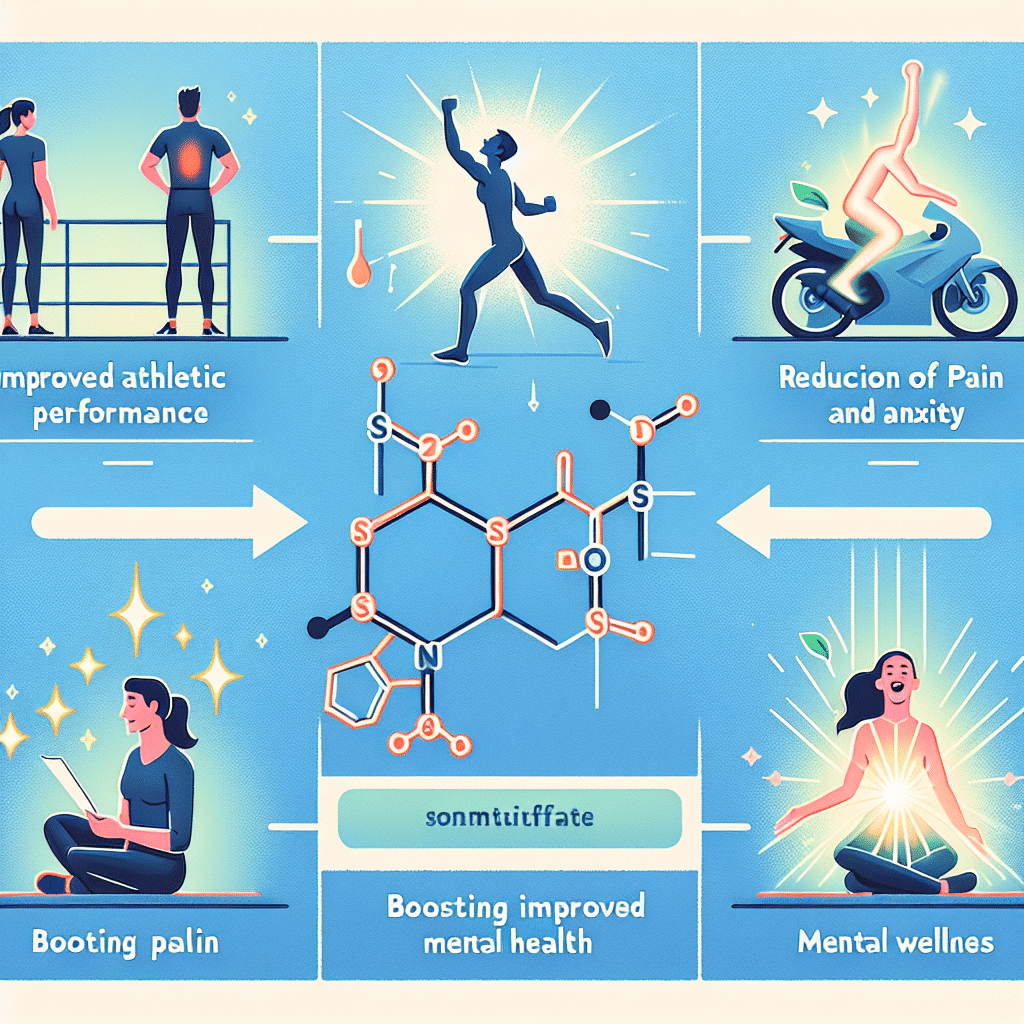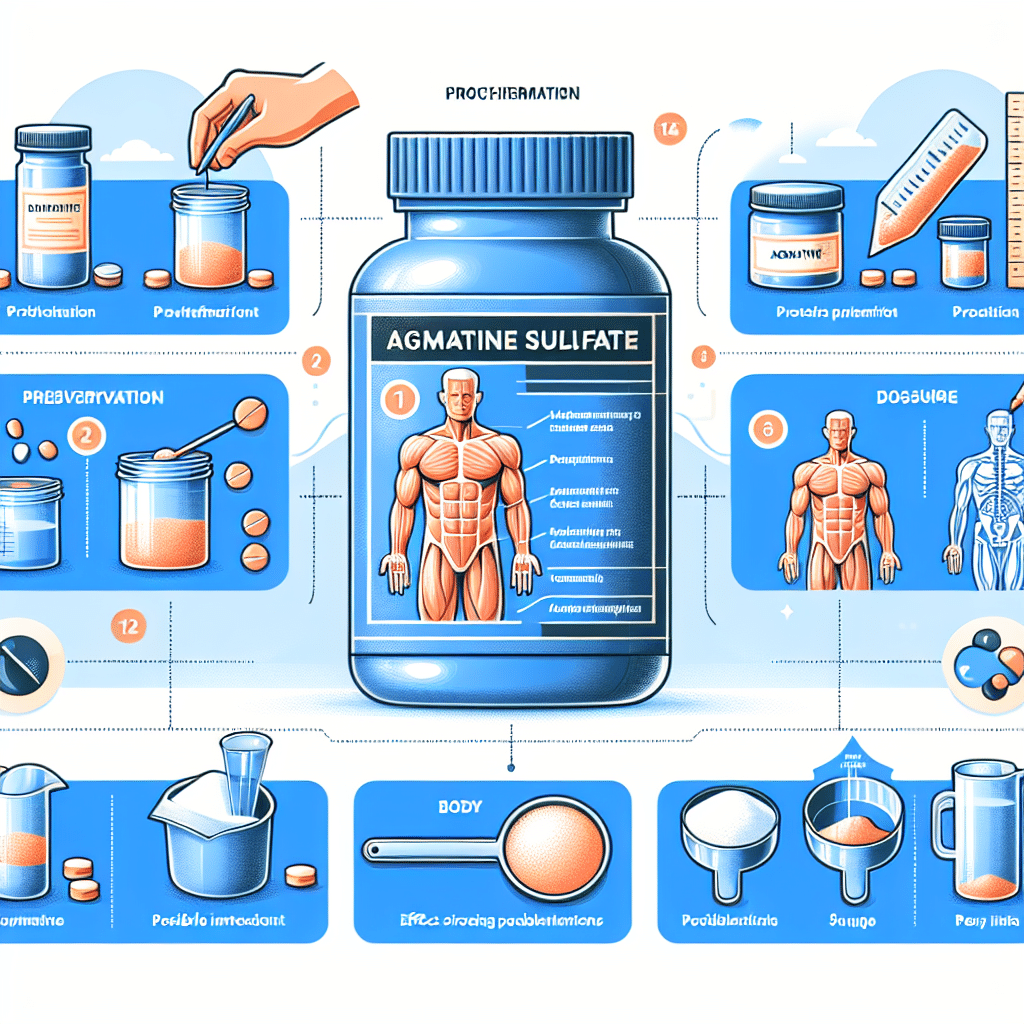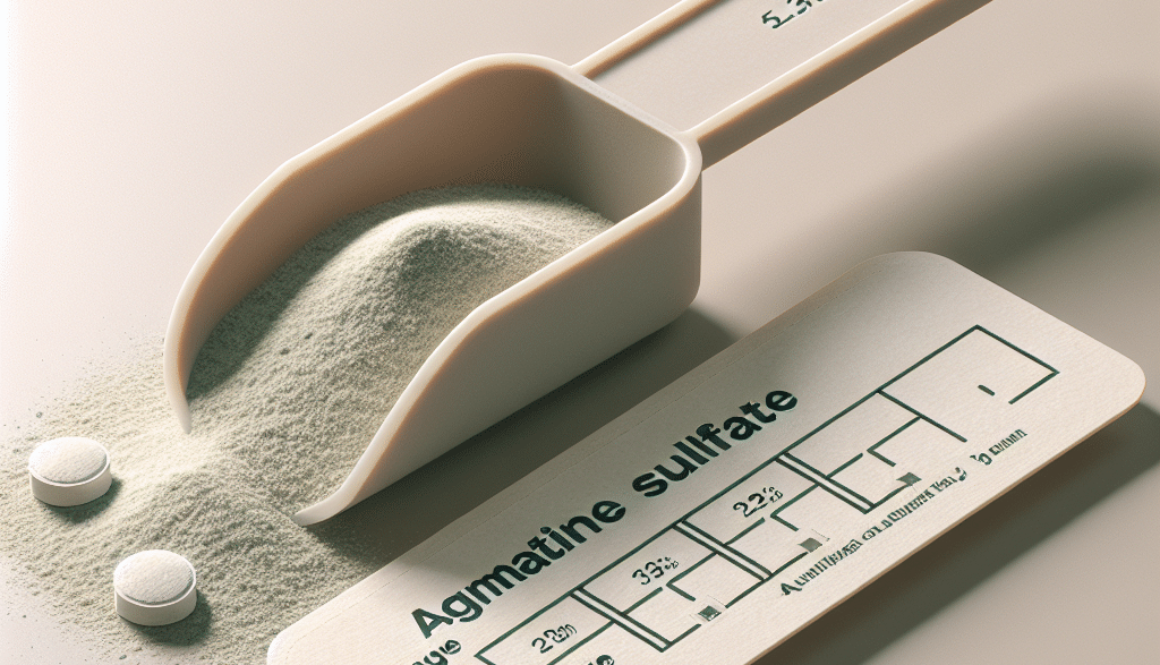Agmatine Sulfate vs Arginine: Key Differences
-
Table of Contents
- Agmatine Sulfate vs Arginine: Exploring Key Differences and Benefits
- Understanding Arginine: The Precursor to Agmatine
- Agmatine Sulfate: The Metabolite with Multiple Mechanisms
- Comparing Benefits and Functions
- Nitric Oxide Production and Cardiovascular Health
- Neuroprotection and Cognitive Function
- Bodybuilding and Athletic Performance
- Side Effects and Safety Considerations
- Case Studies and Research Findings
- Conclusion: Choosing Between Agmatine Sulfate and Arginine
- Discover ETchem’s Premium Protein Products
Agmatine Sulfate vs Arginine: Exploring Key Differences and Benefits
When it comes to amino acids and their derivatives, there’s a wealth of options available for those looking to enhance their health, fitness, and overall well-being. Two compounds that often come up in discussions about cardiovascular health, bodybuilding, and dietary supplements are agmatine sulfate and arginine. While they may sound similar and are related in terms of their origin, they have distinct properties, benefits, and uses. In this article, we’ll delve into the key differences between agmatine sulfate and arginine, backed by scientific research and expert insights.
Understanding Arginine: The Precursor to Agmatine
Arginine, also known as L-arginine, is an amino acid that plays a vital role in the body. It’s involved in protein synthesis, wound healing, immune function, and the production of nitric oxide (NO). Nitric oxide is crucial for vasodilation, which is the widening of blood vessels, leading to improved blood flow and lower blood pressure.
- Arginine is a conditionally essential amino acid, meaning the body can produce it, but supplementation may be necessary under certain conditions, such as illness or stress.
- It’s found in dietary sources like red meat, poultry, fish, and dairy products.
- Arginine supplements are popular among athletes and bodybuilders for their potential to enhance physical performance and recovery.
Agmatine Sulfate: The Metabolite with Multiple Mechanisms
Agmatine sulfate is a metabolite of arginine, created through a process called decarboxylation. It’s less well-known than arginine but has been gaining attention for its unique effects on the body.
- Unlike arginine, agmatine sulfate is not used for protein synthesis.
- It’s believed to modulate several molecular targets, including neurotransmitter systems, ion channels, nitric oxide (NO) synthesis, and polyamine metabolism.
- Agmatine sulfate has potential therapeutic applications in neuropathic pain and drug addiction, as well as cognitive health.
Comparing Benefits and Functions
Nitric Oxide Production and Cardiovascular Health
Both arginine and agmatine sulfate are associated with nitric oxide production, but they do so through different pathways. Arginine is a direct precursor to nitric oxide, while agmatine sulfate modulates NO synthesis indirectly. Studies suggest that agmatine sulfate may help maintain cardiovascular health by influencing endothelial function and reducing blood pressure.
Neuroprotection and Cognitive Function
Agmatine sulfate has shown promise in neuroprotective roles, potentially aiding in the prevention of stroke and neurodegenerative diseases. It may also have anxiolytic (anxiety-reducing) effects and improve cognitive function. Arginine, on the other hand, does not have as strong a link to cognitive health.
Bodybuilding and Athletic Performance
Arginine is a staple in pre-workout supplements due to its role in NO production and potential to improve blood flow, thereby enhancing exercise performance. Agmatine sulfate is also used in sports nutrition, but its benefits may extend beyond vasodilation to include pain relief and improved insulin sensitivity, which can be advantageous for body composition and muscle growth.
Side Effects and Safety Considerations
Both arginine and agmatine sulfate are generally considered safe when taken in appropriate doses. However, excessive intake of arginine can lead to gastrointestinal discomfort and may interact with certain medications. Agmatine sulfate’s safety profile is less established, but it appears to be well-tolerated in the short term. Long-term effects and optimal dosing require further research.
Case Studies and Research Findings
Several studies have highlighted the potential of agmatine sulfate in treating neuropathic pain and protecting against strokes. In contrast, arginine’s benefits for cardiovascular health and exercise performance have been more extensively documented. Ongoing research continues to uncover the nuances of how these compounds affect the human body.
Conclusion: Choosing Between Agmatine Sulfate and Arginine
In summary, while arginine and agmatine sulfate share a common lineage, their effects on the body are distinct. Arginine is primarily known for its role in protein synthesis and nitric oxide production, making it a favorite among athletes for performance enhancement. Agmatine sulfate, however, offers a broader range of potential health benefits, particularly in the realm of neuroprotection and pain management. The choice between the two should be based on individual health goals, existing conditions, and scientific evidence.
Discover ETchem’s Premium Protein Products
If you’re looking to supplement your diet with high-quality protein products, consider exploring ETchem’s extensive range of collagen offerings. From marine to bovine collagen, ETchem provides a variety of protein solutions to support your health and fitness journey.
About ETChem:
ETChem, a reputable Chinese Collagen factory manufacturer and supplier, is renowned for producing, stocking, exporting, and delivering the highest quality collagens. They include marine collagen, fish collagen, bovine collagen, chicken collagen, type I collagen, type II collagen and type III collagen etc. Their offerings, characterized by a neutral taste, instant solubility attributes, cater to a diverse range of industries. They serve nutraceutical, pharmaceutical, cosmeceutical, veterinary, as well as food and beverage finished product distributors, traders, and manufacturers across Europe, USA, Canada, Australia, Thailand, Japan, Korea, Brazil, and Chile, among others.
ETChem specialization includes exporting and delivering tailor-made collagen powder and finished collagen nutritional supplements. Their extensive product range covers sectors like Food and Beverage, Sports Nutrition, Weight Management, Dietary Supplements, Health and Wellness Products, ensuring comprehensive solutions to meet all your protein needs.
As a trusted company by leading global food and beverage brands and Fortune 500 companies, ETChem reinforces China’s reputation in the global arena. For more information or to sample their products, please contact them and email karen(at)et-chem.com today.

